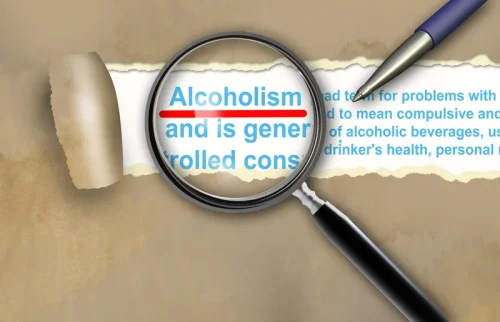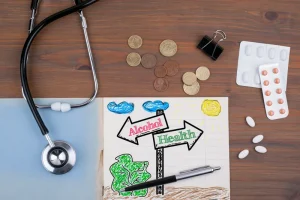
Early sobriety may come with feelings of fatigue and the stress of dealing with challenges (people, places, and things that stimulate the urge to use). It’s impossible to know how you’ll react and how your life will change when getting and staying sober. Dealing with setbacks or relapses is a common part of the recovery process. It’s important to view these events not as failures but as opportunities for learning and growth.
Top Common Fears in Recovery
Additionally, pursue an addiction treatment center that prioritizes relapse prevention. You’ll know you will be taught the tools to prevent a relapse and to deal with one if you do relapse. There’s always the fear of a ride malfunction on a roller coaster. Your brain knows this, and, as a result, it becomes afraid. You may again seek out the people and situations that support your alcohol use. Some people who move from a controlled and protective setting find themselves awash in the environmental cues that lead to their drinking.
- It’s not okay to be dishonest with yourself about where you’re headed.
- You may feel as though you don’t belong in a place of employment because you screwed up so badly.
- Strengthening your coping strategies and possibly adjusting your recovery plan can help prevent future setbacks.
Why Do You Experience Fear in Recovery?
Becoming sober isn’t just about abstaining from alcohol. It’s a subversive, hardcore choice to take your life into your own hands. It’s an opportunity to grow into your bones, and every single crap thing that happens to you on the way only makes you stronger. You are a mirror now, a flashlight of sobriety in a society that is laced with the judgment that it’s abnormal to abstain from alcohol. People will assume you drink and will be very curious about why you don’t have a drink in your hand when they do. When we asked our alumna to describe what being sober feels like, she gave a detailed and inviting description that captured these key points.
- Thankfully, there have only been a few times when someone at the table hasn’t pointed it out on my behalf and adjusted accordingly.
- Getting sober may seem difficult, but there are strategies you can use to get and maintain sobriety.
- It’s important to remember that just because we’re highly focused on a recovery-based peer group now, doesn’t mean it has to stay that way forever.
- If that’s you, no matter your level of addiction, you should consider doing an inpatient medical detox.
- Staying sober requires a person to analyze the reasons why they were using the substance, identify their personal triggers for relapse, and avoid falling into a pattern of use again.
Addiction Info
- Scary movies often involve gore and death – both topics most people fear.
- On the other hand, recovery can be filled with anxiety and fear.
- For more information about Suboxone (buprenorphine/naloxone) see Suboxone.com, the full Prescribing Information, and Medication Guide, or talk to your healthcare provider.
- “The importance of restoring a healthy brain through an optimal diet is often overlooked, and eating seafood rich in omega-3 fat may be especially helpful,” shares Dr. Umhau.
That’s not going to be easy, but the alternative is to continue slowly destroying the one https://ecosoberhouse.com/ life you’re given. It’s not okay to be dishonest with yourself about where you’re headed.

Schedule regular meetings with a professional to maintain focus on recovery
- Beyond relief, you may also feel some mental clarity, emotional peace, and even a sense of pride for outwardly embracing your recovery, Stone adds.
- You recognize what you’ve put them through, you’re ashamed of it and you wish you could take it back.
- Any information published on this website or by this brand is not intended as a substitute for medical advice, and you should not take any action before consulting with a healthcare professional.
- Some people may want nothing to do with you, no matter how much you change.
By focusing on evidence-based treatments and addressing the mind, body, and soul, we provide a foundation for lasting recovery. You may have started using substances because you feared being left out or not fitting in with a social group. You may also have started using drugs because you feared anxiety or depression caused by unresolved fear of being sober trauma. You know that substances are running your life, but you continue to use because you fear facing the consequences that are tied to your use. You may be reading this article not because you’re worried about your relationship to alcohol, but because you suspect someone you love is suffering from alcohol use disorder.
How To Stay Sober When Everyone Is Drinking

Sobriety Fear #4: You’ll actually succeed.

Strong Emotions

